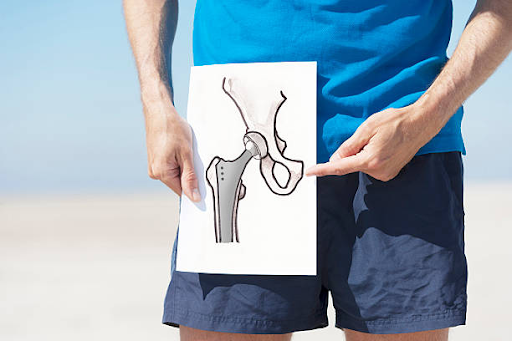
Hip surgery is a standard procedure to address various hip conditions. The decision to undergo hip surgery can be difficult, as many different types of procedures are available. This article will explore the most common types of hip surgery and provide information to help you determine which procedure is proper for you.
What Are The Types of Hip Surgery
Total Hip Replacement
Total hip replacement, also known as hip arthroplasty, is a standard surgical procedure for treating severe hip arthritis. During this procedure, the damaged bone and cartilage in the hip joint are removed and replaced with a prosthetic implant. This procedure is highly effective in relieving pain and restoring mobility.
Partial Hip Replacement
Partial hip replacement, or hemiarthroplasty, is a surgical procedure that replaces only the damaged or diseased part of the hip joint. This procedure is typically performed in cases where the femoral head has been damaged, but the socket remains healthy.
Hip Resurfacing
Hip resurfacing is a surgical procedure that involves reshaping the damaged bone in the hip joint and capping it with a metal prosthesis. This procedure is less invasive than total hip replacement and may be an option for younger, active patients who require a more durable implant.
Hip Osteotomy
Hip osteotomy is a surgical procedure to correct deformities, such as hip dysplasia or femoroacetabular impingement. During this procedure, the hip bone is cut and repositioned to improve alignment and reduce stress on the joint.
Hip Arthroscopy
Hip arthroscopy is a minimally invasive surgical procedure used to diagnose and treat various hip conditions, including labral tears, femoroacetabular impingement, and synovitis. During this procedure, a tiny camera is inserted into the hip joint, allowing the surgeon to view and repair any damage.
What Is The Most Common Hip Surgery?
The most common hip surgery, including total hip replacement or hip arthroplasty, is typically recommended for patients with severe hip pain or joint damage caused by osteoarthritis, rheumatoid arthritis, or hip fractures. It has a high success rate and can significantly improve a patient’s mobility and quality of life.
Suppose you want a hip surgeon in Melbourne to perform this procedure. In that case, it is essential to consult with your doctor or search for a qualified orthopedic surgeon with experience in hip replacement surgery.
Is Hip Surgery A High-Risk Surgery?
Hip surgery has some risks, but they vary depending on the patient’s health and the type of procedure. It’s generally considered safe, but it’s important to discuss risks and benefits with your doctor beforehand. Older age, obesity, and pre-existing medical conditions like diabetes or heart disease may increase the risk of complications.
Choosing the Right Procedure
The decision to undergo hip surgery should be made in consultation with your orthopedic surgeon. Factors that may influence the choice of the procedure include:
- The severity of your hip condition
- Your age and overall health
- Your activity level
- Your personal preferences and goals
Your surgeon will work with you to determine the best treatment for your needs.
Recovery and Rehabilitation
The recovery and rehabilitation process following hip surgery will vary depending on the type of procedure performed and the individual patient’s condition. In general, patients must undergo physical therapy to restore strength and mobility to the hip joint. Your surgeon will provide specific instructions and guidelines to follow during your recovery. If you have any knee treatment conditions, you must inform your doctor or physical therapist, as these may affect your rehabilitation program and the timeline for your recovery.

The Benefits Of Hip Surgery
Hip surgery can provide numerous benefits for patients with hip conditions. Some of the benefits include:
Reduced Pain
Hip surgery can effectively relieve pain caused by hip conditions, allowing patients to move and function with less discomfort.
Improved Mobility
Hip surgery can improve a patient’s ability to walk, run, and perform daily activities by correcting hip deformities and restoring damaged joints.
Better Quality Of Life
Patients who undergo hip surgery often experience an improved quality of life, as they can participate in activities they may have previously avoided due to pain or limited mobility.
Increased Longevity Of Joint
With prosthetic components designed to last for many years, hip surgery can increase the longevity of the hip joint and delay the need for further surgeries.
Prevention Of Further Damage
Hip surgery can prevent further damage to the joint and surrounding tissues by correcting underlying hip conditions.
Hip surgery can be a life-changing procedure that can help patients to regain mobility and independence, reduce pain, and improve their overall quality of life.
Final Thoughts
Hip surgery is a standard procedure used to treat various hip conditions, and several types of functions are available. The most common type of hip surgery is total hip replacement, which involves replacing the damaged parts of the hip joint with prosthetic components.
Hip surgery is generally safe with low risk of complications, but there are still risks involved. Your orthopedic surgeon can help you decide which system is best based on factors like the severity of your condition, age, health, activity level, and personal goals. After surgery, physical therapy is necessary to regain strength and mobility in the hip joint.
Interesting Related Article: “Can surgery increase Workers Compensation settlement in California?“

